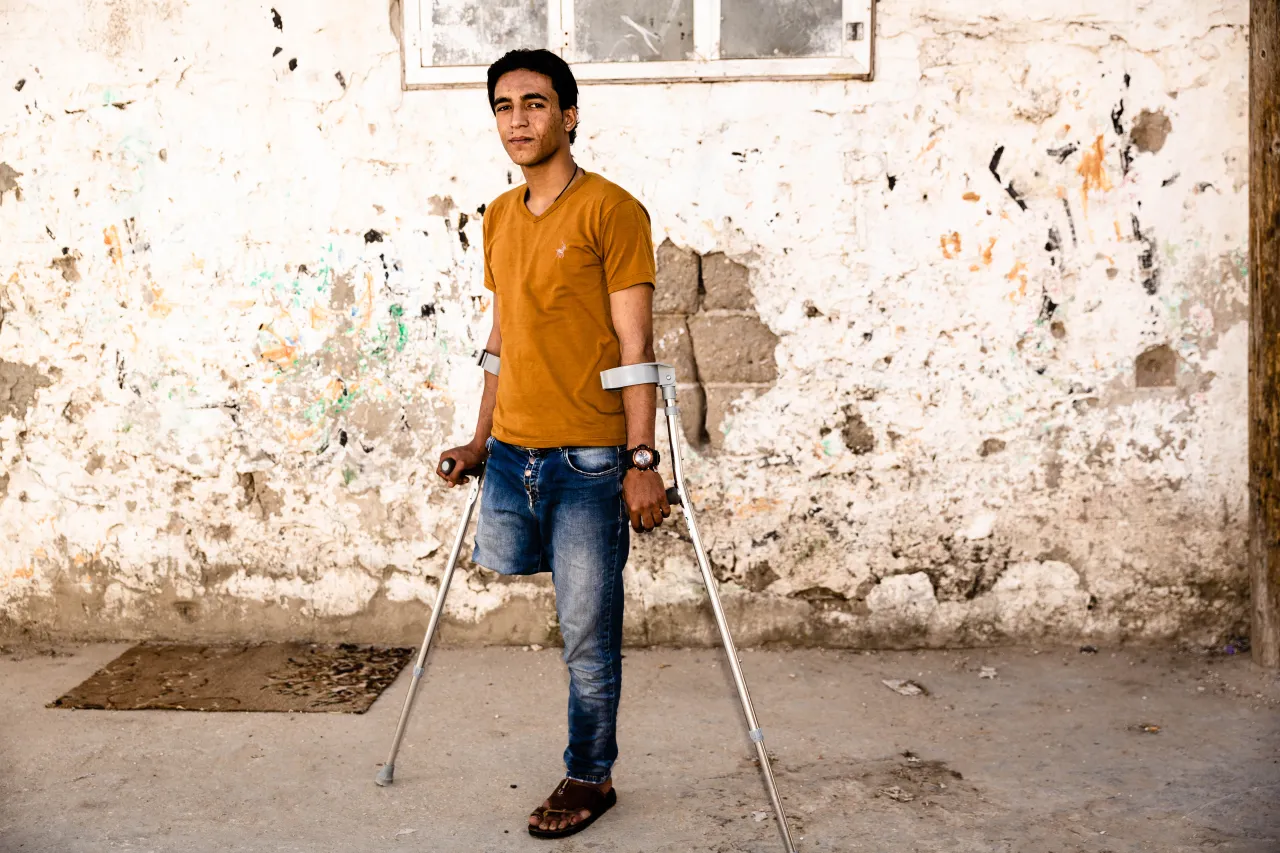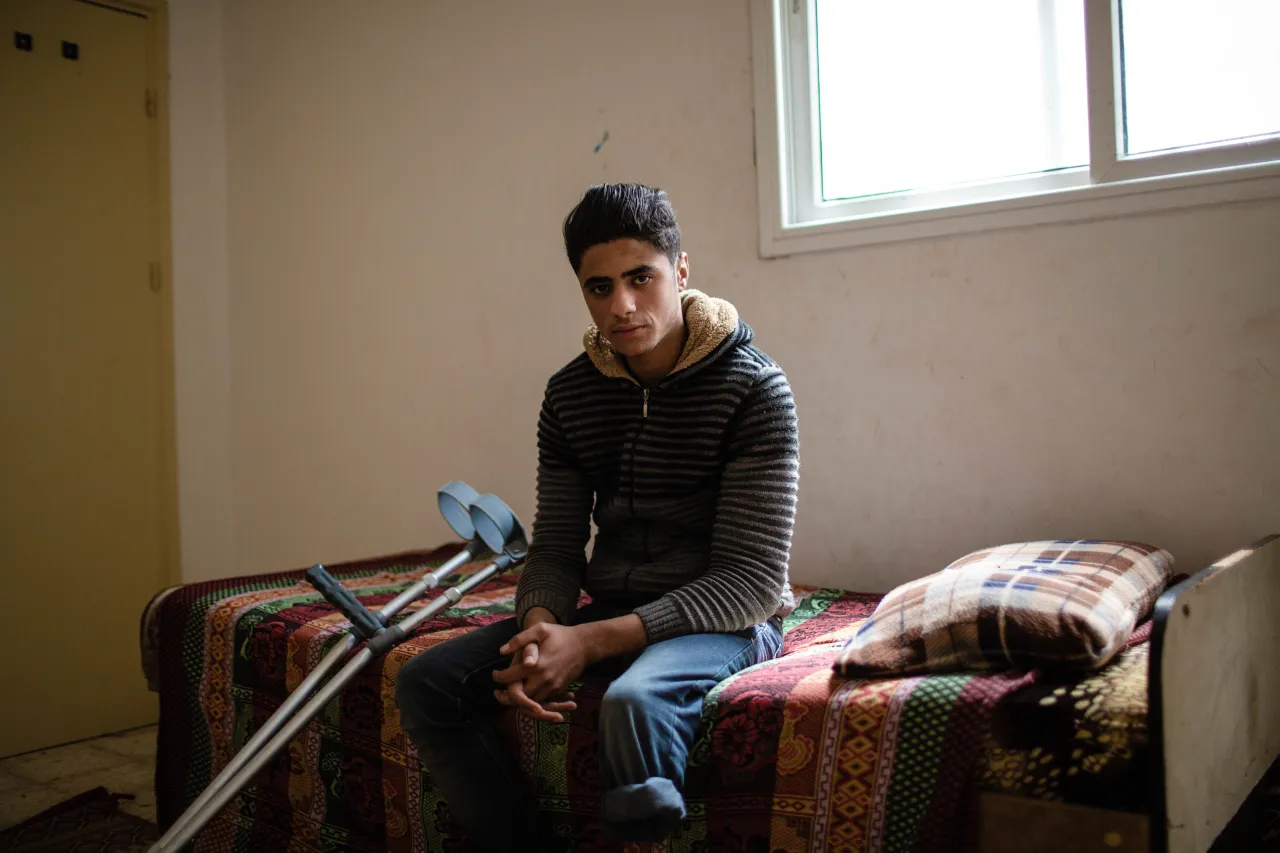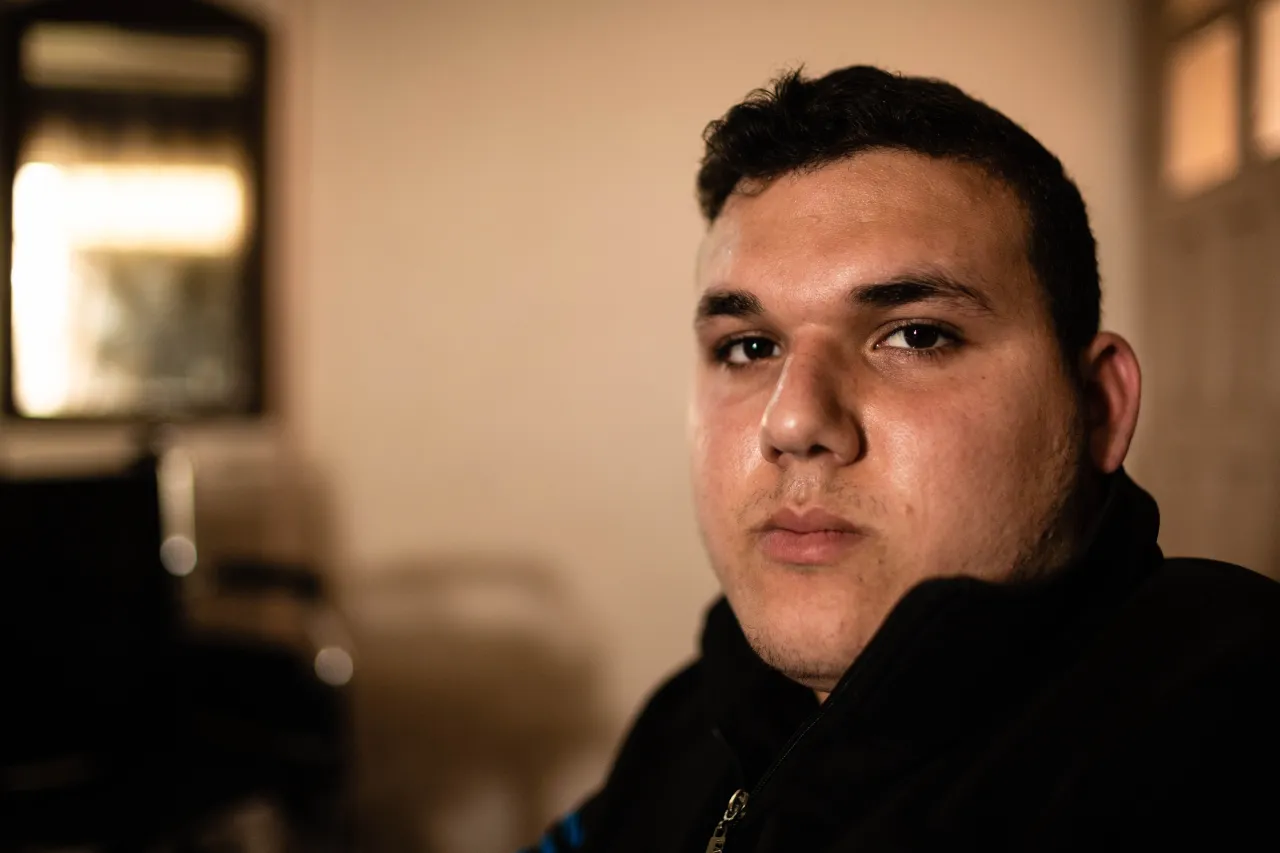Young amputees in Gaza are striving to put their lives back on track

The ICRC supports a physical rehabilitation centre in Gaza where amputees receive physical rehabilitation, mobility devices and psychological support. Furthermore, the ICRC’s microeconomic grants help people with disabilities find a source of income.
Due to a series of border demonstrations in Gaza that started in March 2018 and lasted for over a year, 136 people lost limbs. Among a population of 2 million, there are around 1,600 amputees in Gaza. Half of its workforce is unemployed, and the competition on the job market is fierce. People with disabilities find themselves at a disadvantage, as roads and buildings are not wheelchair accessible and many available jobs require physical strength.
The situation is particularly dramatic for the young. At 68 per cent, the unemployment rate for Gaza university graduates is among the highest in the world. In the face of these grim statistics, young amputees in Gaza fight against trauma and isolation, earn diplomas and expand their skills to build a better future against all odds.

CC BY-NC-ND / ICRC / Alyona Synenko
Haitham
"If you love me, don’t go there," Haitham’s father told him and the 19-year-old promised his parents to stay away from the fence. But curiosity took over and he decided that nothing bad would happen if he went to see the big event everyone in Gaza was talking about.
When he arrived at the site, Haitham mixed with the crowd that started pushing closer to the border fence. "Once you are inside the crowd, you don’t act the same way. It’s hard to control what you do," he explained.
Haitham's next memory is waking up on a hospital bed, to a wave of pain. When he fully regained consciousness, he felt the grief and dismay of his parents. They were struggling to process the fact that only a couple of hours before he had been at home with them, and now they were seeing him with a bullet in his leg, facing the terrifying prospect of an imminent amputation.
After Haitham was discharged from hospital, he went back to selling cigarettes by the side of the road, one of his first jobs as a teenager. Each time a car would stop next to him, the prospective customer would step out of the car before he managed to stand up and hand the person a pack through the window. He felt defeated. He could not bear the thought that people were pitying him and quickly gave up the business.
As he was trying to find new opportunities, the future seemed more uncertain than ever. "Before, I was constantly on the move," said Haitham. "Being able to go many places and get there fast was how I managed to get work." Haitham wants to open a video game café in his neighborhood, hoping the business will succeed.

CC BY-NC-ND / ICRC / Alyona Synenko
Omar
Omar was 19 when he lost his leg after a bullet tore through it on 14 May 2018, the worst day in a series of border demonstrations in Gaza. "When I woke up at the hospital, I was shocked and depressed. I felt that my future was lost." For the energetic young man, a football player and dabke dancer, living with a disability was hard to imagine.
Despite physical pain and depression, Omar found the will to study for his school graduation exams from the hospital bed. Supporting his university degree was beyond the family's financial means and he dropped out after one semester.
Now, Omar is learning to repair mobile phones. When he speaks about opening a device, trying to find the problem and understand how it works, his face lights up. He hopes to open his own repair shop. "Without hope, life would be unbearable," Omar said.

CC BY-NC-ND / ICRC / Alyona Synenko
Abdallah
Abdallah became a double amputee at 17, the age when most if his peers are full of hopes and dreams about the future. After the injury, Abdallah had to give up his dream of becoming a journalist. "To succeed as a journalist, you have to move around a lot and be very fast," he said explaining his decision.
Moving on a wheelchair around Gaza, where many roads are unpaved, and elevators stand still most of the time for lack of electricity, is a daily challenge. Abdallah insisted on his class being moved to the ground level of the building to be able to continue attending school.
The most difficult thing for Abdallah was to be dependent on others: "Sometimes, I forget about the amputation and make a spontaneous move," he said. Psychological and social isolation is another challenge he must overcome, as he often feels that other people blame him for what happened.
Abdallah dreams of receiving prosthetic limbs and enrolling in a university, although he is convinced that his chances of getting a job afterwards are very low.



